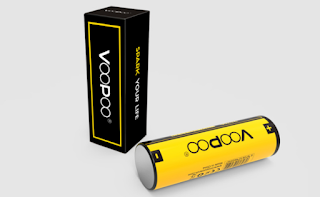More and More Restrictions are Put on E-cigarettes: See What Happened!
The vaping industry has been evolving
really speedily in the recent decades. E-cigarettes helps more and more smokers
turn smoking into vaping which is much more healthier. However, too much water
drowned the miller. Vaping developing so rapidly has endangered the interests
of traditional tobaccos. Thus, there are more and more restrictions and bans on
E-cigarettes.
In China, Hong Kong will ban sales, manufacture, importation, distribution, or promotion of vapor products and heat-not-burn (HNB) tobacco products according to the South China Morning Post. A conviction for any of these crimes could result in up to six months in jail and a fine of 50,000 Hong Kong dollars (about $6,370 U.S.).
In India, last December, the country’s ministry of electronics and IT proposed changes to India’s InformationTechnology Act, which would require Facebook, WhatsApp, Twitter and so on to remove online content that promotes ENDS.
In Canada, following the release of a campaign targeting youth vaping, Health Canada is now proposing new restrictions on advertising vaping products to minors. It is said that adverts for vaping products would also not be allowed within 30 minutes of any television or radio show aimed at children or youth, and in any publications, including social media platforms, that are aimed at youth. Additionally where allowed, such ads would also have to include health warnings, whether the product contains nicotine or not.
The above are just the tip of the world’s vaping restrictions iceberg. How vaping industry will develop still remains unknown.
In China, Hong Kong will ban sales, manufacture, importation, distribution, or promotion of vapor products and heat-not-burn (HNB) tobacco products according to the South China Morning Post. A conviction for any of these crimes could result in up to six months in jail and a fine of 50,000 Hong Kong dollars (about $6,370 U.S.).
In India, last December, the country’s ministry of electronics and IT proposed changes to India’s InformationTechnology Act, which would require Facebook, WhatsApp, Twitter and so on to remove online content that promotes ENDS.
In Canada, following the release of a campaign targeting youth vaping, Health Canada is now proposing new restrictions on advertising vaping products to minors. It is said that adverts for vaping products would also not be allowed within 30 minutes of any television or radio show aimed at children or youth, and in any publications, including social media platforms, that are aimed at youth. Additionally where allowed, such ads would also have to include health warnings, whether the product contains nicotine or not.
The above are just the tip of the world’s vaping restrictions iceberg. How vaping industry will develop still remains unknown.

评论
发表评论